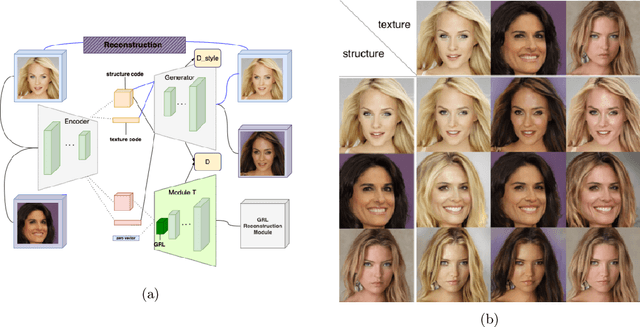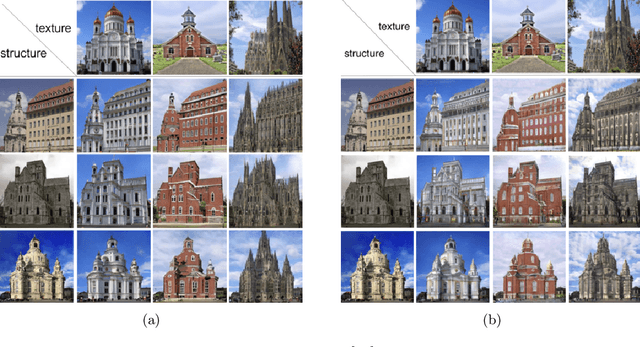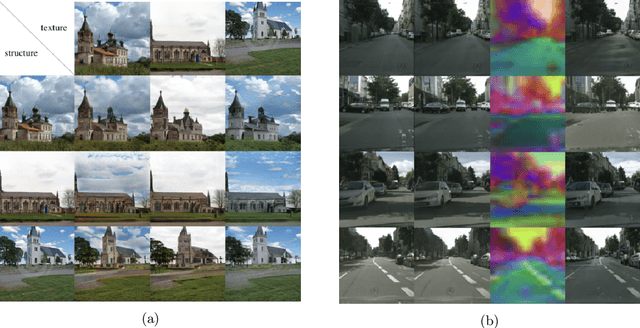Unsupervised Structure-Consistent Image-to-Image Translation
Paper and Code
Aug 24, 2022



The Swapping Autoencoder achieved state-of-the-art performance in deep image manipulation and image-to-image translation. We improve this work by introducing a simple yet effective auxiliary module based on gradient reversal layers. The auxiliary module's loss forces the generator to learn to reconstruct an image with an all-zero texture code, encouraging better disentanglement between the structure and texture information. The proposed attribute-based transfer method enables refined control in style transfer while preserving structural information without using a semantic mask. To manipulate an image, we encode both the geometry of the objects and the general style of the input images into two latent codes with an additional constraint that enforces structure consistency. Moreover, due to the auxiliary loss, training time is significantly reduced. The superiority of the proposed model is demonstrated in complex domains such as satellite images where state-of-the-art are known to fail. Lastly, we show that our model improves the quality metrics for a wide range of datasets while achieving comparable results with multi-modal image generation techniques.
 Add to Chrome
Add to Chrome Add to Firefox
Add to Firefox Add to Edge
Add to Edge